Husqvarna vs Stihl chainsaws: which is the best choice?
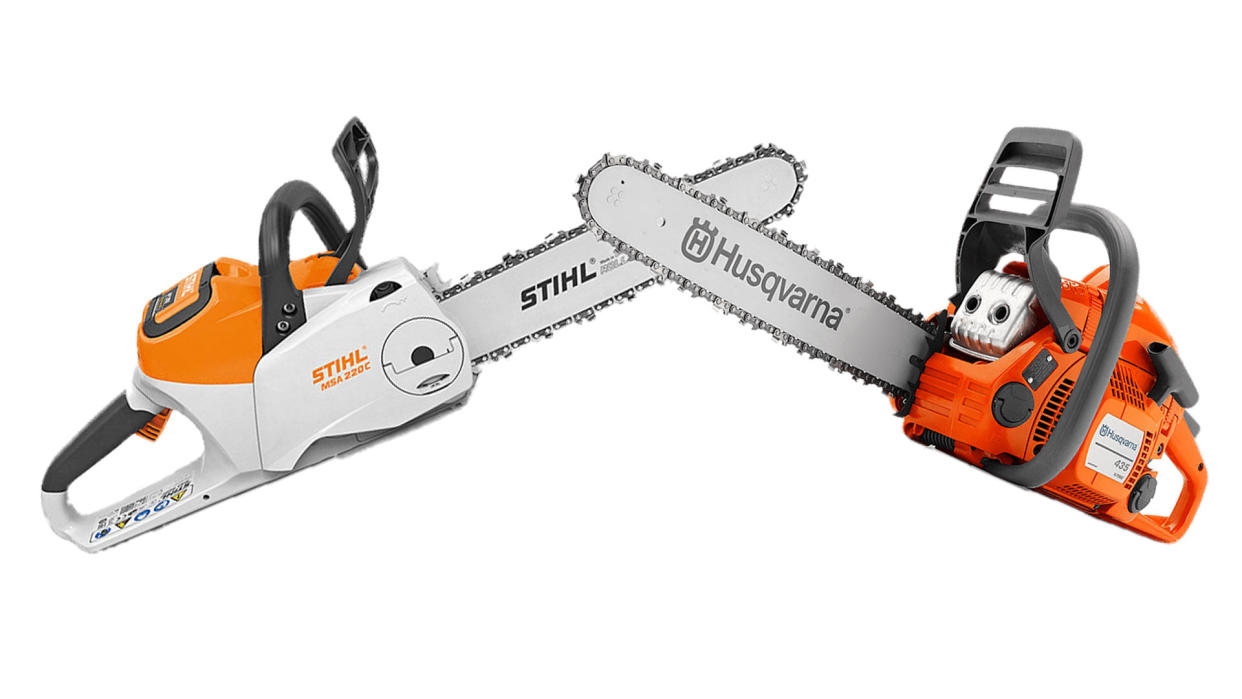
In this article, we're putting Husqvarna vs Stihl chainsaws to the test to see which brand comes out on top. Both brands are leaders in gardening equipment and known for producing some of the best chainsaws, but to help you choose the best pick for you, we've assessed them according to price, product range, design and features.
Husqvarna was founded in Sweden and produces high-quality chainsaws like the Husqvarna 460 Rancher chainsaw and other gardening tools such as lawn mowers and string trimmers. Stihl is a German brand known for products like the Stihl Farm Boss chainsaw and a host of other tools.
Chainsaws are vital to maintaining your back yard. They should be able to chop, fell, buck and climb any greenery, no matter how big or small. Your requirements will likely be different whether you're a newbie, hobbyist, or professional landscaper. Chainsaws aren't one-size-fits-all, so it's important to choose the right product to get started on your gardening tasks.
Husqvarna vs Stihl chainsaws: Price
Chainsaws aren’t known for being cheap. However, the price you pay comes down to whether you’re using a chainsaw for your line of work, home or hobby. And then there’s that age-old dilemma: gas or electric?
Husqvarna 3120 XP®, Husqvarna’s priciest chainsaw, is just over $1,900, thanks to its high-power logging and stump skills for professionals, and for Stihl, it’s around $2400 for the MS 881 Magnum®, a heavy-duty forestry chainsaw.
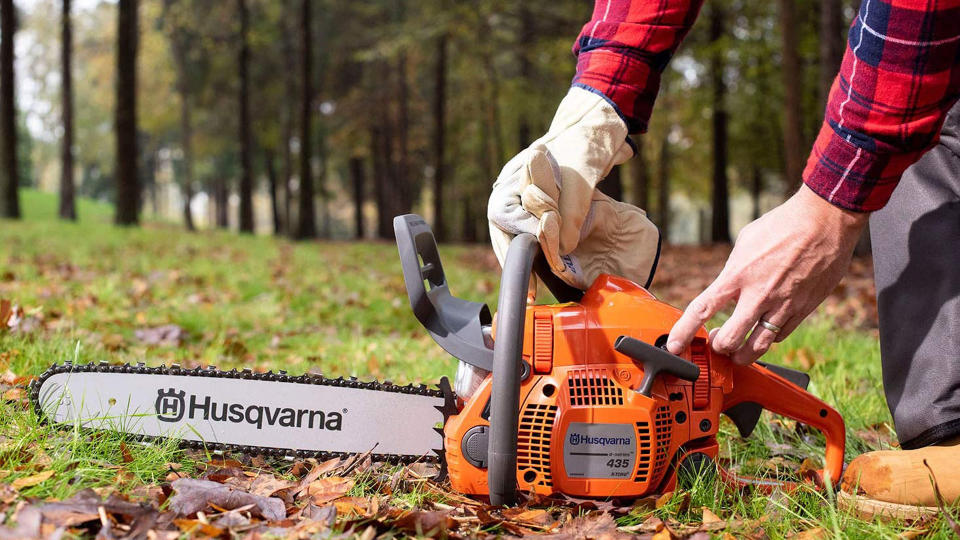
For more casual users, however, the prices are a little less daunting. A battery-powered chainsaw from Husqvarna costs between $219.99 and $599.99, while for Stihl, an entry-level electric chainsaw is as little as $230 for 1.4 kW of power.
As for the gas-powered end of things, well, Stihl’s gas chainsaws for home use cost between $270 and $860 for at least 1.2 kW of power, while Husqvarna’s are as high as $1,900 or as little as $180 for a gas chainsaw that’s more than handy for chopping firewood with 1.5 kW of power.
So, while Husqvarna’s high flyers cost a pretty penny, overall, their chainsaws are more affordable than Stihl’s. That’s good news if your budget is tight, because comparably, they beat Stihl on power too.
Husqvarna vs Stihl chainsaws: Product range
Gas or electric? It’s one of the first questions you’ll be faced with when buying a chainsaw, whether at a retailer or online, so it’s a good job that Husqvarna and Stihl deliver on both fronts. For home use, Husqvarna has 33 gas chainsaws, while Stihl has 21.
However, it’s their electric range where Husqvarna stumbles. Husqvarna only has five chainsaws in their battery-powered, zero-emission electric cordless range, a far cry from Stihl’s nine MSE electric chainsaws and nine cordless, battery-powered chainsaws.
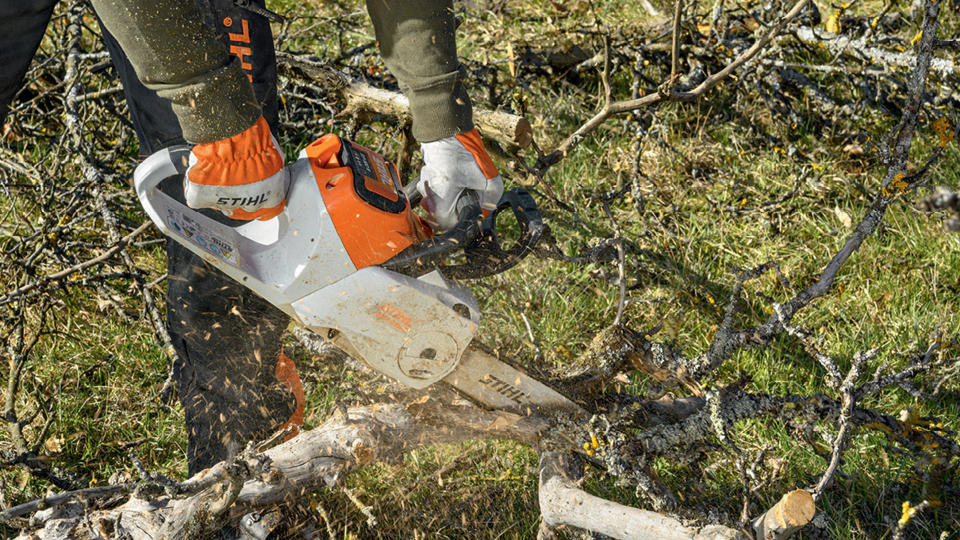
When it comes to professional chainsaws, Husqvarna has 25 chainsaws and five top handle arborist chainsaws, including their XP range. However, Stihl keeps up the pace, delivering petrol chainsaws for agriculture, forestry, horticulture, emergency services and carving. There are 27 types of chainsaws for forestry alone.
While Stihl has fewer gas chainsaws than Husqvarna for home use, it’s leagues ahead on the professional front, and you can afford to be choosier when browsing their electric and battery-powered chainsaws, good news for beginners and hobbyists looking for a discreet, quiet-running machine.
Husqvarna vs Stihl chainsaws: Design
Design is where things start to get a little more complex. Naturally, this will depend upon whether the chainsaw is gas, electric or battery-powered. However, Stihl chainsaws do have a few traits in common, including ergonomic designs and lightweight builds. Their quiet, exhaust-free electric chainsaws weigh between nine and 12.5 lbs and put out between 1.4 and 2.5 kW in power, while their cordless designs weigh as little as 5.5 lbs.
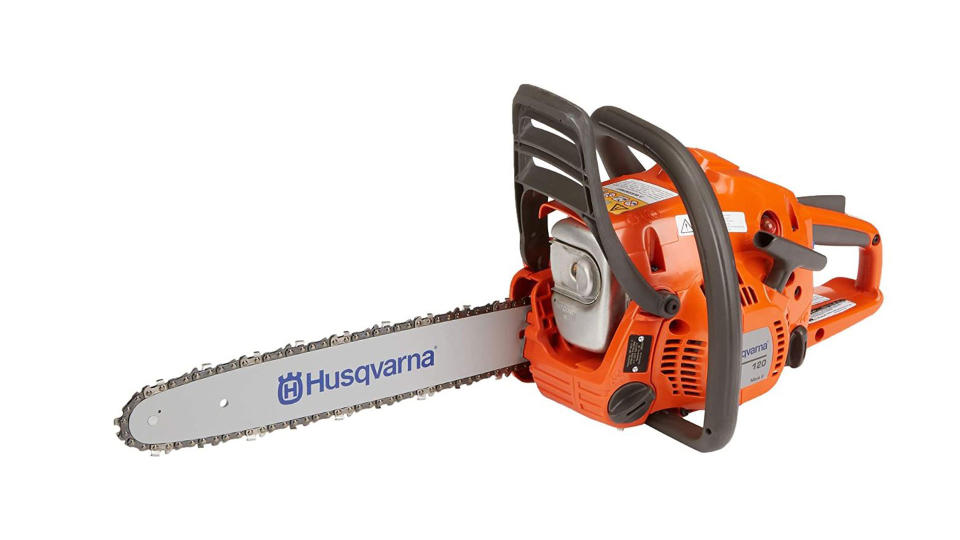
Surprisingly, there’s not much difference in power compared with their gas models, which deliver between 1.2 and 2.2 kW and weigh between 9 and 17.6 lbs, unless you want a heavier-duty professional chainsaw with up to 4.5 kW. These weigh as much as 13 lbs, but on the flip side, their cordless chainsaws are nearly half the weight at just under 7 lbs.
Husqvarna chainsaws also boast an ergonomic design. Their battery-powered chainsaws have zero emissions, good news for green-fingered buyers, and their casual gas chainsaws’ X-TORQ engine is designed to produce lower emissions.
Husqvarna’s battery-powered chainsaws are even lighter than Stihl’s electric and cordless range, beginning at around 5.3 lbs. Surprisingly, their gas models can be as light as 6 lbs too. Still, they don’t compromise on power. Their lightest option delivers 1.5 kW, while their heaviest option puts out over 6 kW.
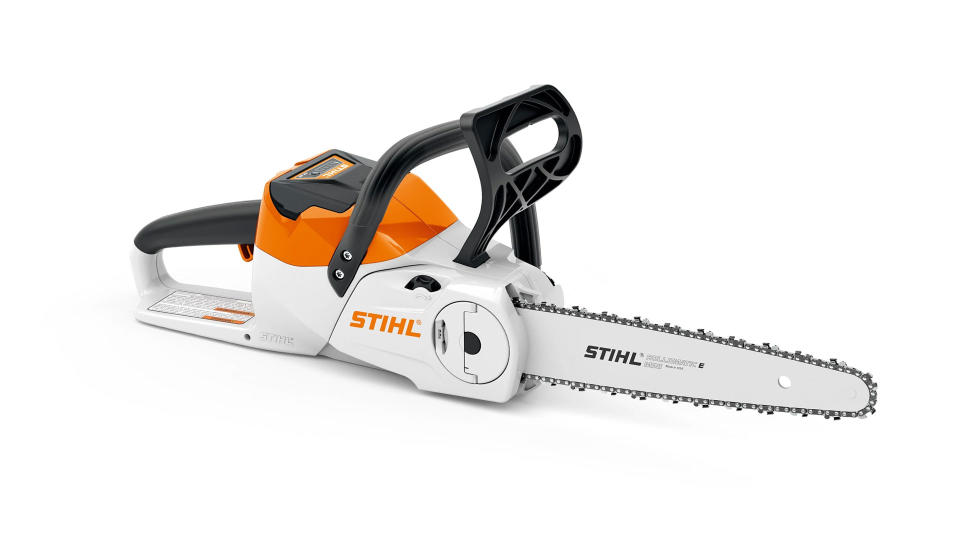
So as well as being lighter, Husqvarna comes out on top for power, and looks out for the environment while it does so.
Husqvarna vs Stihl chainsaws: Features
All the Stihl chainsaws are available as basic versions or comfort models. The latter have added features such as Chain Quick Tensioning for comfort, ErgoStart for a jerk-free take-off and QuickStop Super chain brakes for safety.
Husqvarna chainsaws are heavy on features too and this includes anti-vibration technology, as well as an AutoTune feature, which pays close attention to factors such as fuel, altitude, humidity, temperature and air filter to keep the engine optimal while you break a sweat.
Their chainsaws have a combined start and stop switch with Smart Start technology, making getting started or stopping easier, and a quick-release air filter for easy-as-pie cleaning and replacing. Some of their more expensive and professional chainsaws also have fewer vibrations or a long-lasting Air Injection system to take the air filter system to the next level of cleanliness.
It’s obvious that both brands have poured a lot of energy into their features, and they both do it well. However, Husqvarna’s combined safety switch, anti-vibration technology and AutoTune feature takes the edge here.
Husqvarna vs Stihl chainsaws: Which are better?
Both Huqsvarna and Stihl produce high-quality, reliable chainsaws that pack a serious power punch. However, after carefully assessing price, versatility, features and price-points, we think Stihl chainsaws come out on top.
This isn't to say you shouldn't buy a Husqvarna chainsaw; there are plenty of affordable and effective chainsaws from the brand. In fact, if you're after a lightweight tool with a high-powered design, you may be better off with a Husqvarna chainsaw. But on the whole, Stihl is your best bet to find a great chainsaw with plenty of high-spec features, power, and a comfortable design.

